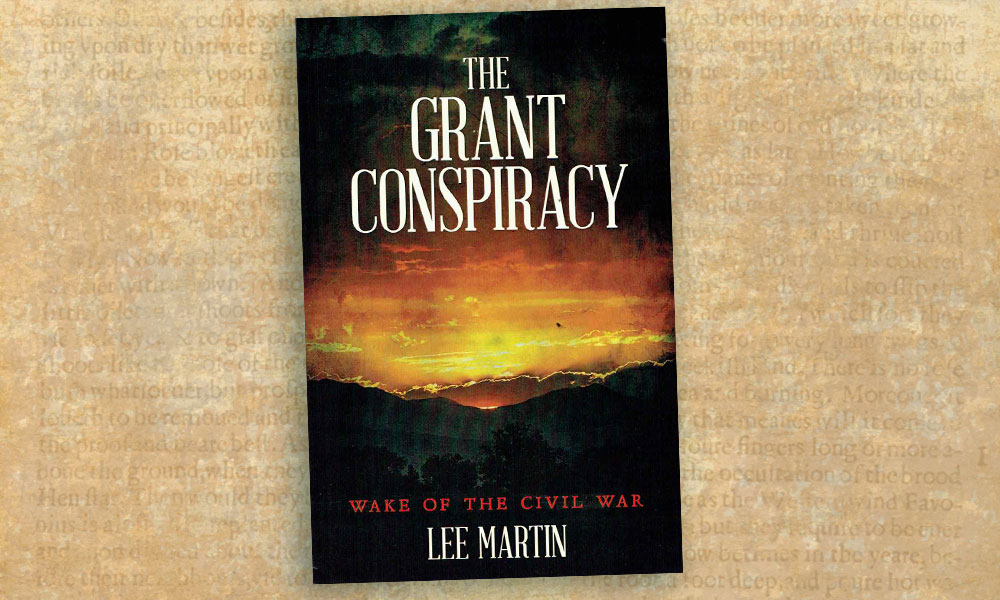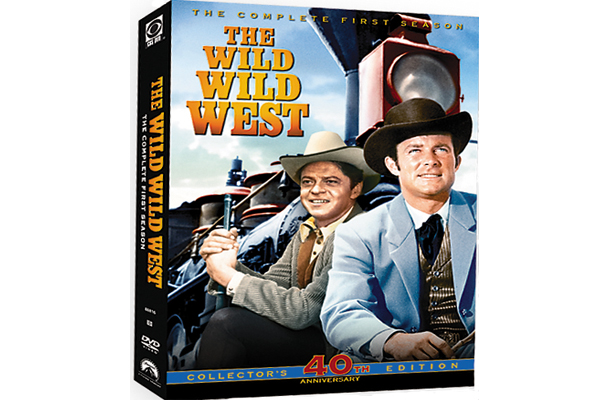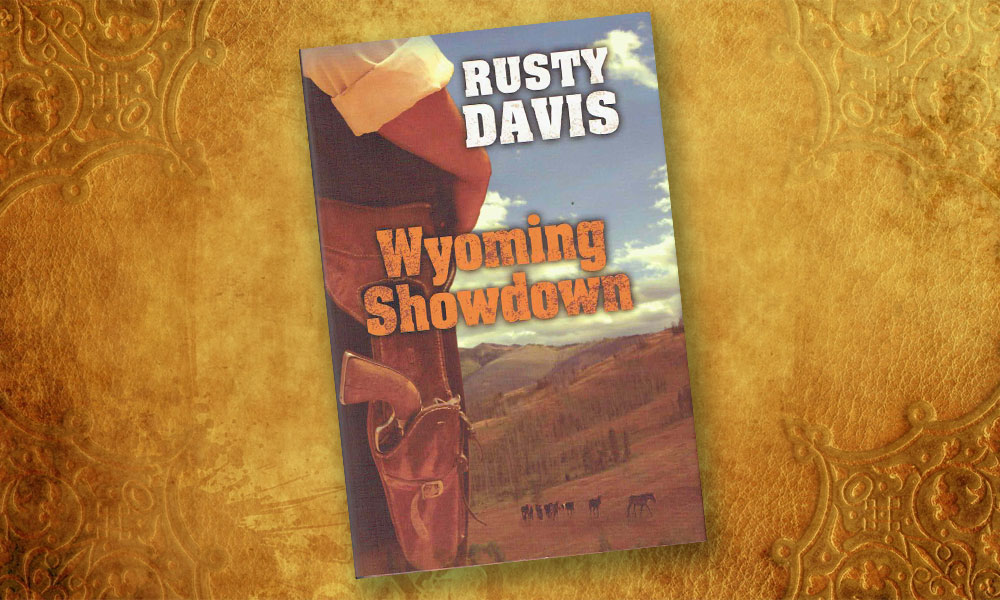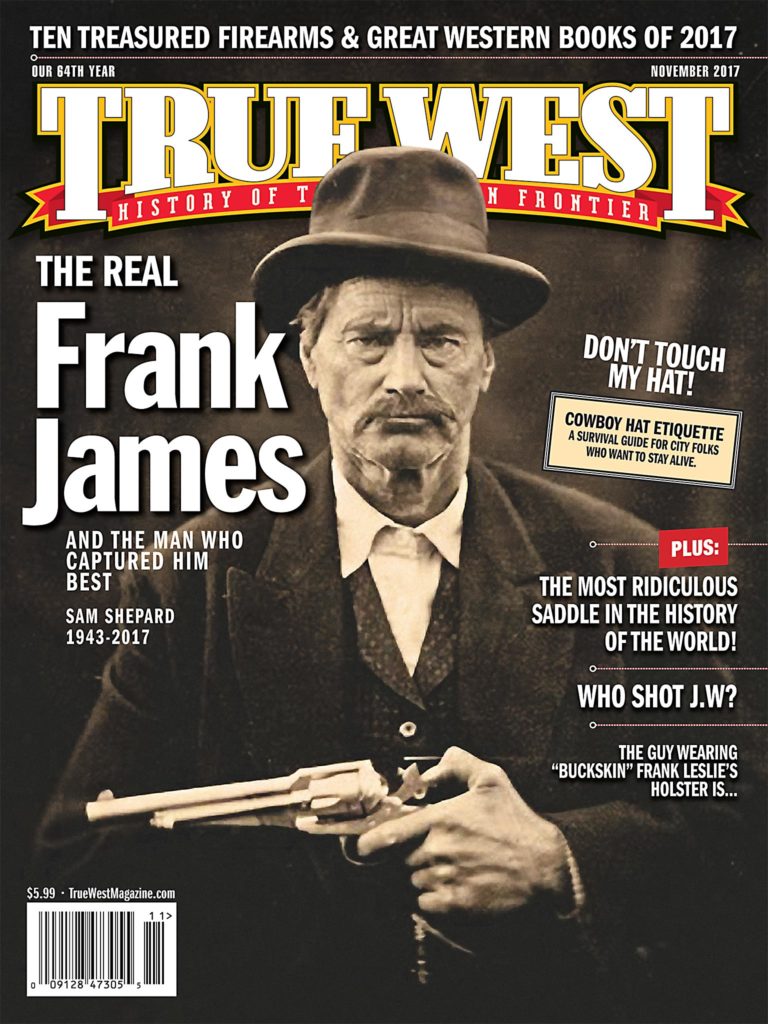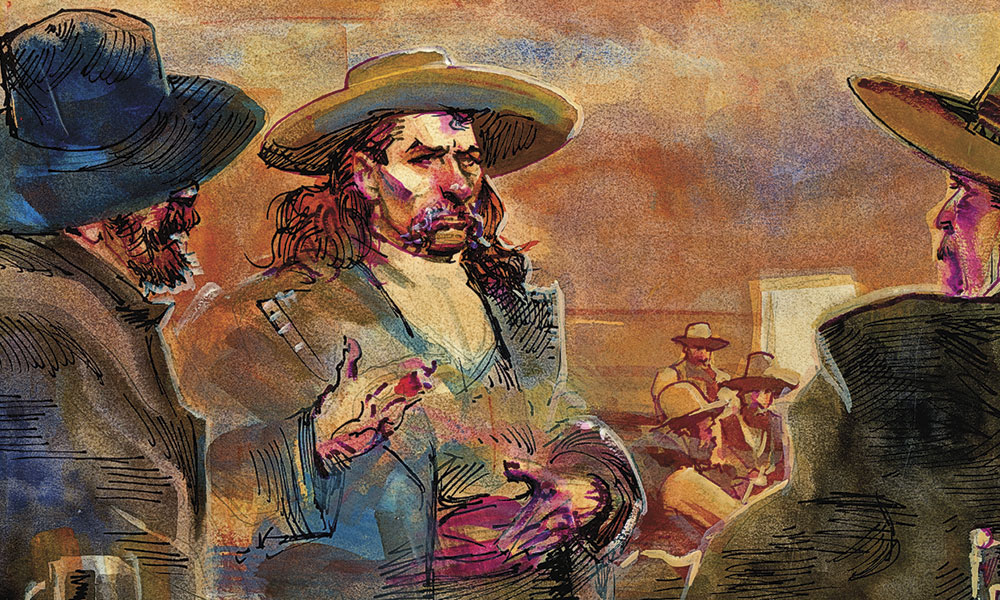
— By Bob Boze Bell —
September 1865
George Ward Nichols and Gen. Thomas Church Haskell Smith, the inspector general of the District of Southwest Missouri, arrive in Springfield, Missouri. In this war-torn area, Smith confides to Nichols that in the “six months preceding not less than 4,000 returned Confederates had been summarily disposed of by shooting or hanging.”
Nichols meets James Butler Hickok and interviews him for a possible article. Hickok lays his tale on thick, and Nichols writes down every word.
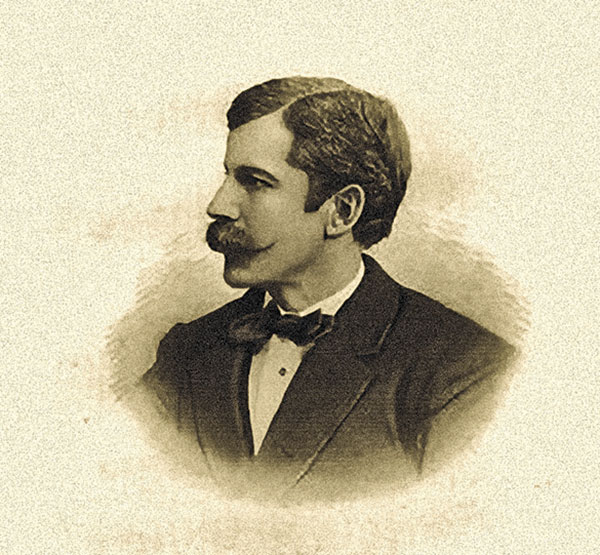
— True West Archives —
A journalist born in Tremont, Maine, on June 21, 1831, Nichols joined the Union Army after the outbreak of the Civil War and served under John C. Frémont and later on, Gen. William Sherman. Nichols rose to the rank of lieutenant colonel. At the close of the Civil War, in 1865, Harper & Brothers published Nichols’ diary, The Story of the Great March, about Sherman’s “March to the Sea” through Georgia, from November 15 to December 21, 1864.
Now that the Civil War was over, Nichols found himself working again as a journalist. When he meets Hickok, he decides to write up the frontiersman’s exploits. Nichols documents Hickok’s shoot-out on July 21 that killed gambler and former Confederate soldier Davis Tutt.
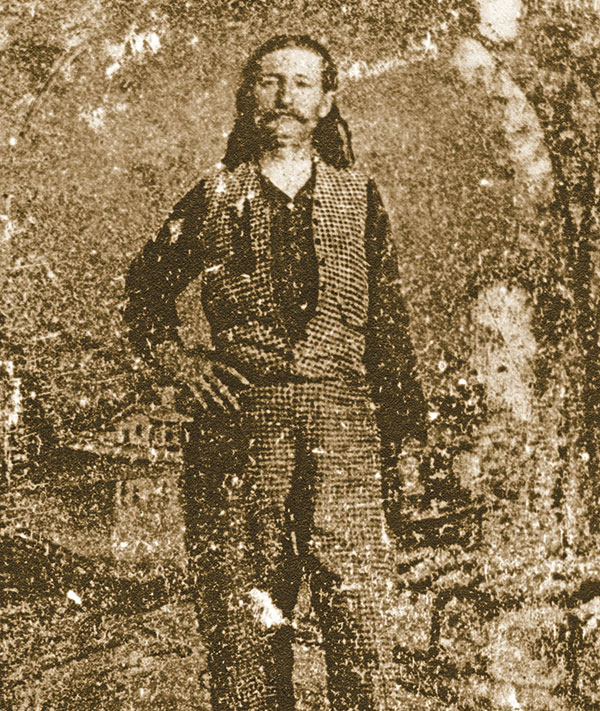
— True West Archives —
The article, “Wild Bill,” in which Nichols misspelled the gunfighter’s last name as “Hitchcock,” appeared in the February 1867 edition of Harper’s New Monthly Magazine. The article made Hickok a celebrity, even as it got immediate blowback from frontier West newspapers, including the Leavenworth Daily Conservative, The Kansas Daily Commonwealth, The Springfield Patriot and the Atchison Daily Champion, which all slammed the stories as inaccurate, especially the part where Hickok claimed he had killed “hundreds of men.”
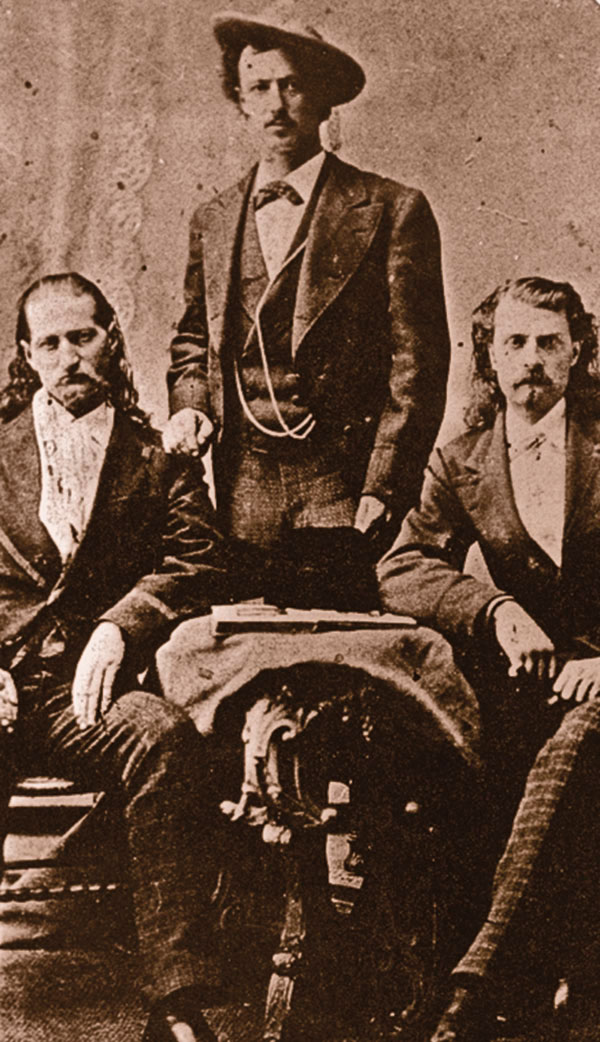
— Courtesy Library of Congress —
Aftermath: Odds & Ends
Stung by the criticism of his Harper’s article on James Butler Hickok, George Ward Nichols moved to Cincinnati, Ohio, and decided to write about music. He died there, on September 15, 1885.
All the media attention, both good and bad, fanned the flames of interest, and Hickok graduated from regional folk hero into a national celebrity known as “Wild Bill.” After acting in a theatrical tour with “Buffalo Bill” Cody, Hickok moved on up to breathe the rarefied air of a living legend.
Unfortunately, Hickok’s fame put a target on his back. Before long, someone took aim at that target.
Recommended: The Illustrated Life & Times of Wild Bill Hickok by Bob Boze Bell, published by Two Roads West. Wild Bill Hickok: The Man & His Myth by Joseph G. Rosa, published by University Press of Kansas.

